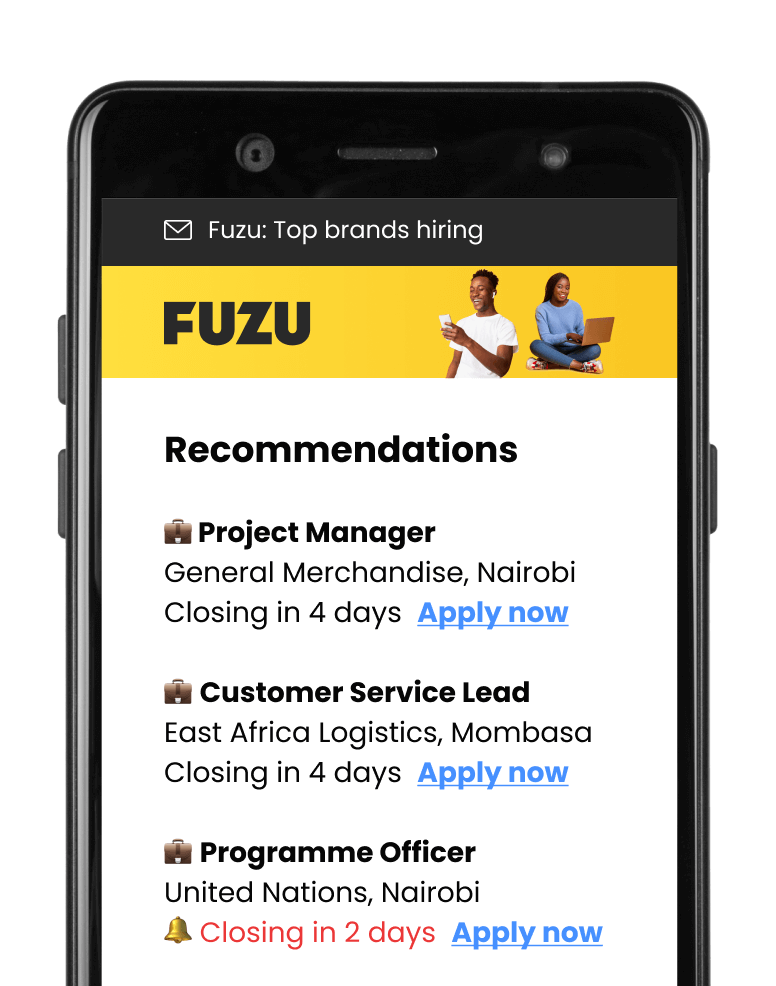Closing: Mar 29, 2024
This position has expiredPublished: Mar 18, 2024 (2 months ago)
Job Requirements
Education:

Work experience:

Language skills:

Job Summary
Contract Type:

Sign up to view job details.
- Define, coordinate and monitor epidemiological activities, in order to identify alerts and risk factors for diseases to guide emergency interventions (clinical, preventive, etc) and ensure the development of appropriate methodology and the quality of studies according to MSF protocols, standards and procedures.
Qualifications & Requirements
Education:
- Essential: medical, nursing or para-medical related diploma
- Essential: degree or masters in Epidemiology or Public Health with extensive training in statistics and epidemiology or diploma in Field Epidemiology and Laboratory Training Programme (FELTP)
- Desirable: specialization or training in tropical diseases or Public Health'
Experience:
- Essential: working experience of at least two years in field epidemiological activities
- Essential: experience in needs assessments, surveillance, alert management and outbreak investigation and control
- Desirable: working experience in MSF or other INGO’s; in low and middle-income country(ries)
Knowledge:
- Essential: computer literacy (MS Office Suite) and an analytical/statistical software (Epi-Info, STATA, R, etc.)
- Essential: database management, statistical analysis, secondary data review, survey designing and implementation, monitoring and evaluation systems design or use, public health information management
- Desirable: knowledge of DHIS2, QGIS, Osmand, PowerBI, KoboCollect, ODK, RedCap, reference manager software (Zotero, Mendeley, etc.)
Skills/ Competences:
- Strategic thinking; Strong Leadership Skills; Proven People Management; Behavioural Flexibility; Commitment to MSF Principles; Result Oriented; Culturally Sensitive; Team player; Planning and Organization
- Ability to multitask including planning and implementation processes within a highly demanding and fast-paced environment
- Sound analytical and organizational skills
- Competency, knowledge and professional skills on public health infectious disease control, epidemic and pandemic preparedness and response
- Excellent presentation and communication skills, with emphasis on writing skills
Responsibilities
- Define, coordinate and monitor epidemiological activities, in order to identify alerts and risk factors for diseases to guide emergency interventions (clinical, preventive, etc) and ensure the development of appropriate methodology and the quality of studies according to MSF protocols, standards and procedures.
Qualifications & Requirements
Education:
- Essential: medical, nursing or para-medical related diploma
- Essential: degree or masters in Epidemiology or Public Health with extensive training in statistics and epidemiology or diploma in Field Epidemiology and Laboratory Training Programme (FELTP)
- Desirable: specialization or training in tropical diseases or Public Health'
Experience:
- Essential: working experience of at least two years in field epidemiological activities
- Essential: experience in needs assessments, surveillance, alert management and outbreak investigation and control
- Desirable: working experience in MSF or other INGO’s; in low and middle-income country(ries)
Knowledge:
- Essential: computer literacy (MS Office Suite) and an analytical/statistical software (Epi-Info, STATA, R, etc.)
- Essential: database management, statistical analysis, secondary data review, survey designing and implementation, monitoring and evaluation systems design or use, public health information management
- Desirable: knowledge of DHIS2, QGIS, Osmand, PowerBI, KoboCollect, ODK, RedCap, reference manager software (Zotero, Mendeley, etc.)
Skills/ Competences:
- Strategic thinking; Strong Leadership Skills; Proven People Management; Behavioural Flexibility; Commitment to MSF Principles; Result Oriented; Culturally Sensitive; Team player; Planning and Organization
- Ability to multitask including planning and implementation processes within a highly demanding and fast-paced environment
- Sound analytical and organizational skills
- Competency, knowledge and professional skills on public health infectious disease control, epidemic and pandemic preparedness and response
- Excellent presentation and communication skills, with emphasis on writing skills
In collaboration with the other MSF team members:
- Horizon scanning and alert monitoring: Perform horizon scanning and epidemic intelligence activities to identify alerts of outbreak prone diseases, malnutrition and conflict. Set up and/or maintain an alert monitoring system for early warning, investigate and verify alerts based on predefined scenarios or events, perform frequent analysis on the alerts identified.
- Disease surveillance and monitoring: Set up new or improve existing mission surveillance and monitoring systems and maintain them according to the mission needs. Monitor the incidence and prevalence of diseases or health conditions in the country & affected population. Implement and maintain the intersectional Nutrition and Food Security Surveillance System.
- Health/needs assessments and exploratory missions: Lead, participate in and support health/needs assessments and exploratory missions in collaboration with the emergency team
- Risk Assessment: Conduct Risk Assessment - assess the risk of disease transmission and other health threats within the affected population
- Outbreak investigation: Perform outbreak investigations and control (lead and/or support the team) using the 10 steps in outbreak investigation as a guide including performing case investigation, implementing linelists, mapping and visualization during assessments and in the response phase, writing situational reports and the final report.
- Respond to emergencies: Participate in and support the MSF team to respond to emergencies and other interventions.
- Epidemiological Toolkit: Develop and/or implement appropriate epidemiological tools to support the MSF activities
- Data Collection and quality assurance: Design and implement data collection systems including case investigation forms, demographics, clinical data, and exposure history during the emergency intervention and on the emergency's impact, train relevant people. Ensure data quality in collaboration with the medical team and data encoders in the field.
- Epidemiological studies: Identify the need for, design and implement surveys or rapid assessments (e.g. vaccination, nutrition, mortality, etc.) to understand epidemiological dynamics. Conduct post-emergency evaluations or surveys.
- Operational Research: In collaboration with the team, identify appropriate operational research questions and develop relevant Operational Research activities including protocol writing and submission to Ethics Committee, study implementation, analysis and scientific communication
- Data management, analysis and scientific writing: Perform data cleaning and management, descriptive and advanced analysis, synthesis, regular and adhoc reporting and scientific communication.
- Epidemiological modelling: analyze seasonality, trends and future predictions of notifiable diseases of public health importance as part of Emergency strategy
- Public Health Recommendations: Interprete appropriately available data and information and, in collaboration with the Project Medical Referent (PRM) and the Deputy Emergency Coordinator (D/EmCo), provide timely evidence-based advise and strategic public health recommendations for decision making to the operations to guide programmatic and response decisions, promote innovative thinking for new strategies and models of care. Provide technical advice to the Head of Mission/Emergency Coordinator and D/EmCo on epidemiological projections linked to specific disease outbreaks for strategy adaptation.
- Public Health Communication: In collaboration with the PMR and D/EmCo communicate public health findings to relevant authorities.
- Capacity building: Train, coach or mentor other team members in epidemiological methods, data collection and management, analysis and reporting when appropriate'
- Planning: Develop and execute the annual epidemiological activity plan with its respective budget
- Networking and Representation: maintain and expand the current network of national public and academic institutions inlcuding the Kenyan Field Epidemiology and Laboratory Training Programme, attend revelant meetings and represent MSF when necessary (cluster meetings, etc.)

Applications submitted via Fuzu have 32% higher chance of getting shortlisted.

